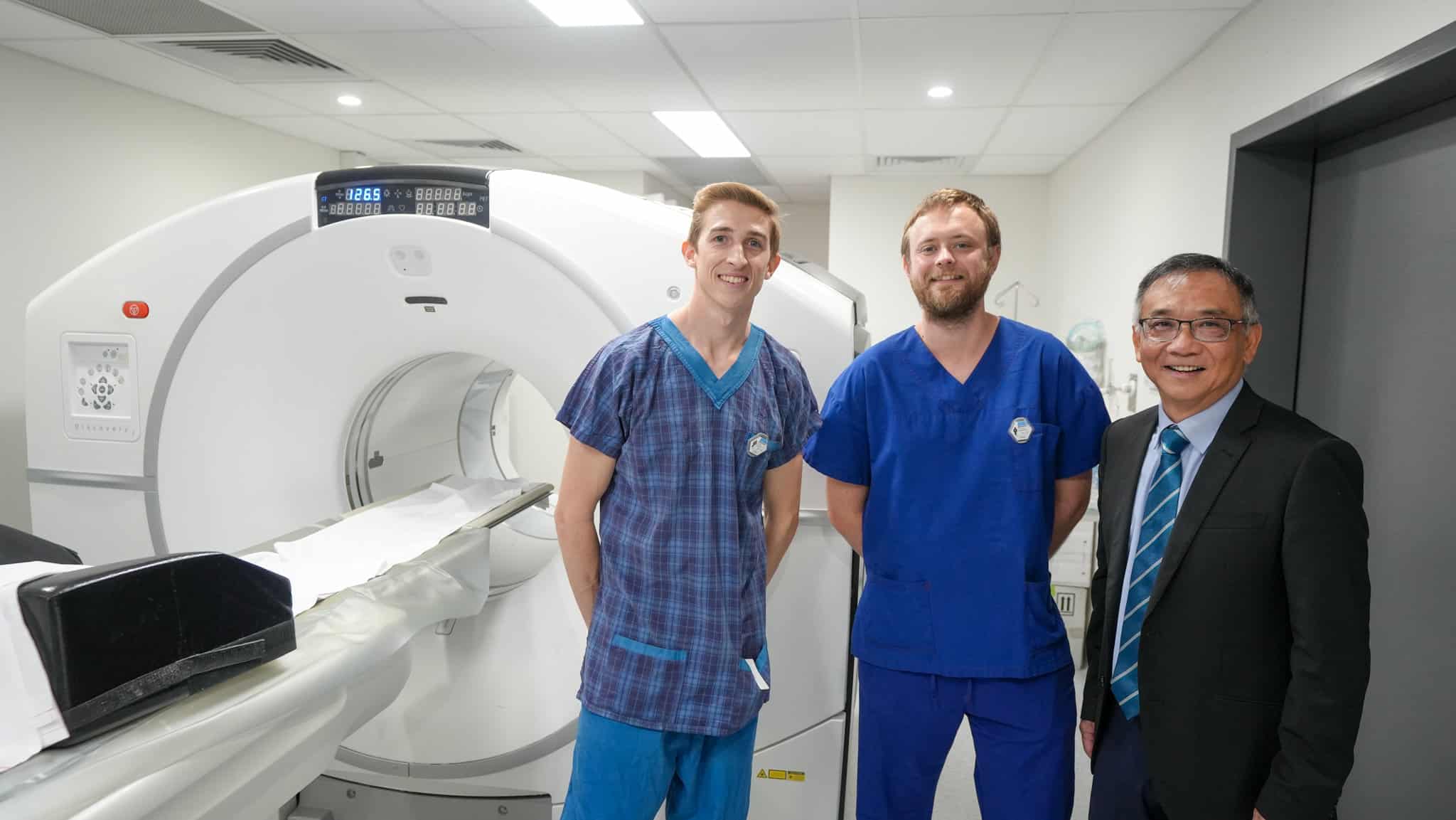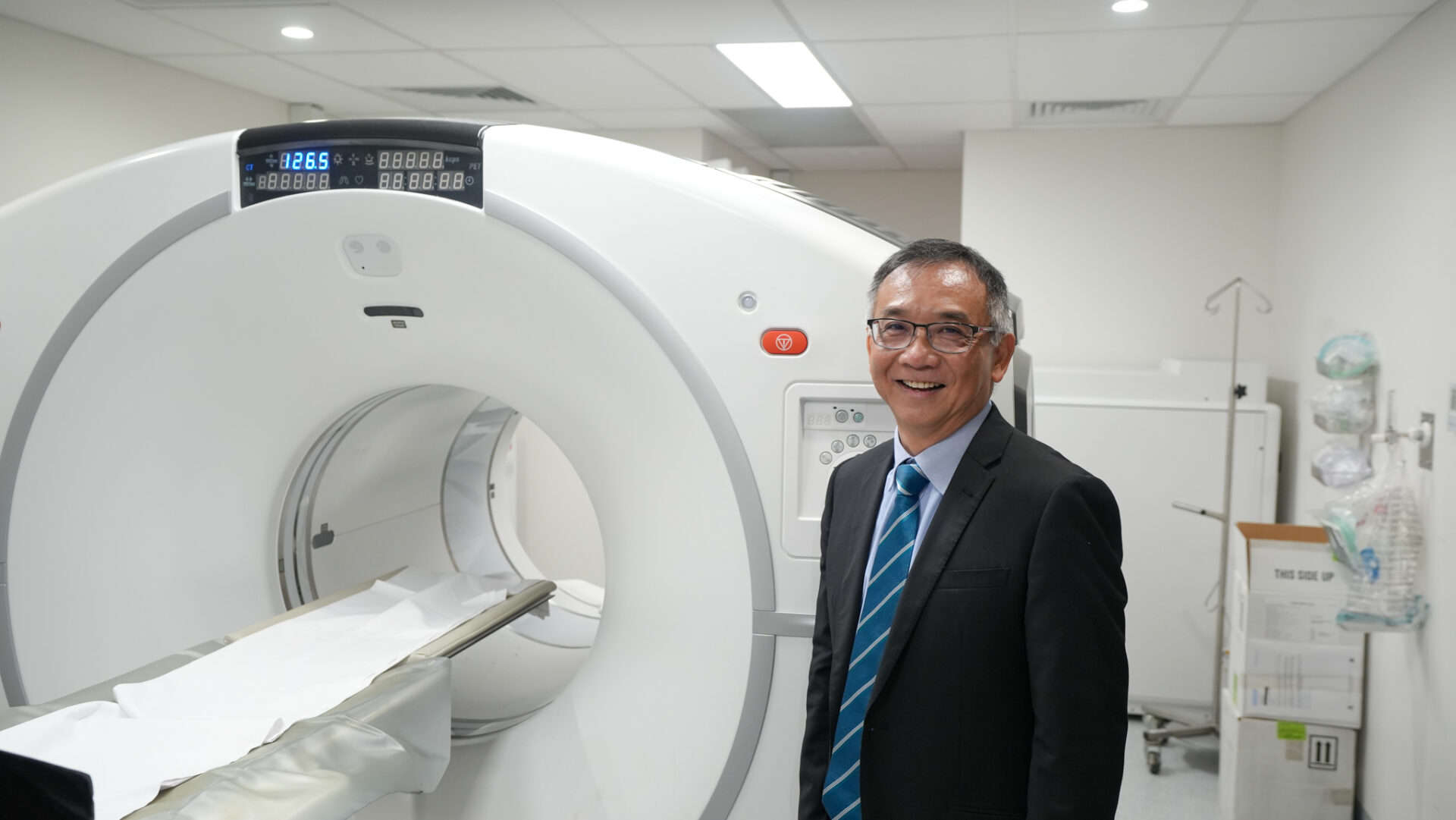
Aiming to revolutionise the diagnosis of Alzheimer’s disease, this innovative project focuses on enabling early and accurate detection for millions of patients.
Led by Associate Professor David Wong and Dr Sepinoud Firouzmand from I-MED Radiology Wesley at The Wesley Hospital in Brisbane, with support from a grant from the Wesley Research Institute, the research will utilise the clinical application of amyloid plaque PET scans to diagnose Alzheimer’s disease, especially in cases where patients’ scans are uncertain.

Amyloid plaque PET scans offer a state-of-the-art method for brain imaging, capable of identifying amyloid plaques, which are indicative of Alzheimer’s disease. These plaques are accumulations of amyloid plaque that disrupt nerve cell function, leading to the cognitive impairments associated with the condition.
The goal of Associate Professor Wong and Dr Firouzmand’s project is to provide more definitive diagnoses in situations where traditional methods, like FDG (fluorodeoxyglucose) PET scans that detects the brain’s glucose consumption, are inconclusive.
This research is particularly timely given the aging demographic in Australia, which predicts an increase in dementia and Alzheimer’s cases.
“With new Alzheimer’s treatments becoming available, the urgency for early and accurate diagnosis is at an all-time high,” said Associate Professor Wong.
The project aims to improve the diagnostic process, enhancing patient care and the efficacy of treatment approaches.
One of the hurdles in Australia has been the limited use of amyloid plaque PET imaging, largely due to the absence of Medicare rebates for Alzheimer’s diagnosis, despite its potential for greater accuracy than FDG PET scans.
“Our aim is to evaluate the effectiveness of amyloid plaque PET for cases where FDG PET scans are uncertain,” he said.
“Success in this area could lead to wider use of amyloid PET imaging and potentially influence health policy to support Medicare coverage for this diagnostic method.”
Improving diagnostic accuracy is expected to significantly benefit patients and their families, offering them earlier interventions and better management of the disease.
Our motivation is to provide hope and a more defined path forward for those facing Alzheimer’s
Associate Professor Wong
“The project is about more than advancing diagnostic capabilities – it’s about altering the course of Alzheimer’s care, ensuring that early and precise diagnoses are accessible to a broader Australian population, thereby transforming Alzheimer’s treatment and patient management for the better.”